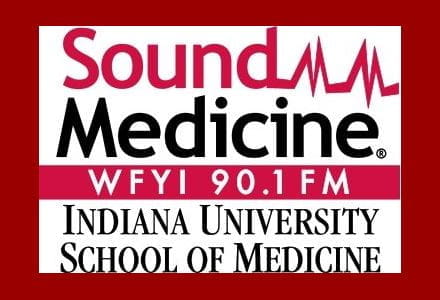INDIANAPOLIS — The “Sound Medicine” program for April 13 includes segments about changes to Medicare Advantage funding, using crowdfunding to raise money for medical expenses, and how mitochondrial transplants can prevent passing on defective genes.
How will changes in funding affect Medicare Advantage plans? The federal government recently proposed new regulations that will help protect Medicare Advantage recipients. Last year, United Healthcare made the sudden decision to drop thousands of doctors from Medicare Advantage plans. According to Aaron Carroll, M.D., M.S., newly proposed governmental changes will help protect the rights of seniors and health care providers. Dr. Carroll is a professor of pediatrics and assistant dean for research mentoring at Indiana University School of Medicine. He is also the director of the Center for Health Policy and Professionalism Research.
Can websites raise money for medical expenses? According to the National Bureau of Economic Research, nearly half of all Americans wouldn’t be able to cover costs such as travel and lost wages in the case of a medical emergency. Many of those people are turning to crowdfunding websites like Kickstarter and GoFundMe, to help cover their expenses. Field reporter Erika Beras takes “Sound Medicine” listeners behind the scenes of medical fundraising to discover how effective crowdfunding can be.
Can better eye care help those suffering from glaucoma? According to a recent study published in the journal Ophthalmology, better eye care for those with glaucoma has led to decreased levels of blindness. Louis Cantor, M.D., the director for glaucoma service at the Eugene and Marilyn Glick Eye Institute, discusses the study, the link between glaucoma and blindness, and what this means for those living with glaucoma.
Medical ethics in the news: Shoukhrat Mitalipov, Ph.D., a professor at Oregon Health and Life Sciences University, recently perfected a procedure that could allow women to have children without passing on genetic defects found in their mitochondria. However, the procedure involves a mitochondrial transplant, which has raised serious ethical concerns. Eric Meslin, Ph.D., the director of the Indiana University Center for Bioethics, discusses the procedure, the ethical concerns it raises, and how this research could be used in the future.
Why are diets destined to fail? Nicole Avena, Ph.D., a research neuroscientist and author of “Why Diets Fail,” joins “Sound Medicine” to discuss why many traditional diets don’t work. Dr. Avena talks about her book, her eight-step system and why she blames sugar addiction for failed diets.
“Sound Medicine” covers controversial ethics topics, breakthrough research studies and the day-to-day application of recent advancements in medicine. It’s also available via podcast and Stitcher Radio for mobile phones and iPads and posts updates on Facebook and Twitter.
Co-produced by the IU School of Medicine and WFYI Public Radio (90.1 FM) and underwritten in part by Indiana University-Purdue University Indianapolis, “Sound Medicine” airs on the following Indiana public radio stations: WBSB (Anderson, 89.5 FM), WFIU (Bloomington, 103.7 FM; Columbus, 100.7 FM; Kokomo, 106.1 FM; Terre Haute, 95.1 FM), WNDY (Crawfordsville, 91.3 FM), WVPE (Elkhart/South Bend, 88.1 FM), WNIN (Evansville, 88.3 FM), WBOI (Fort Wayne, 89.1 FM), WFCI (Franklin, 89.5 FM), WBSH (Hagerstown/New Castle, 91.1 FM), WFYI (Indianapolis), WBSW (Marion, 90.9 FM), WBST (Muncie, 92.1 FM), WBSJ (Portland, 91.7 FM), WLPR (Lake County, 89.1 FM) and WBAA (West Lafayette, 101.3 FM).
“Sound Medicine” is also broadcast on these public radio stations across the country: KSKA (Anchorage, Alaska), KTNA (Talkeetna, Alaska), KUHB (Pribilof Islands, Alaska), KUAF (Fayetteville and Fort Smith, Ark.), KIDE (Hoopa Valley, Calif.), KRCC (Colorado Springs, Colo.), KEDM (Monroe, La.), WCMU (Mount Pleasant, Mich.), WCNY and WRVO-1 (Syracuse, N.Y.), KMHA (Four Bears, N.D.), WYSU (Youngstown, Ohio), KPOV (Bend, Ore.), KEOS (College Station, Texas), WKAR (East Lansing, Mich.), and WCMU (Mount Pleasant, Mich.).
Please check local listings for broadcast dates and times.




